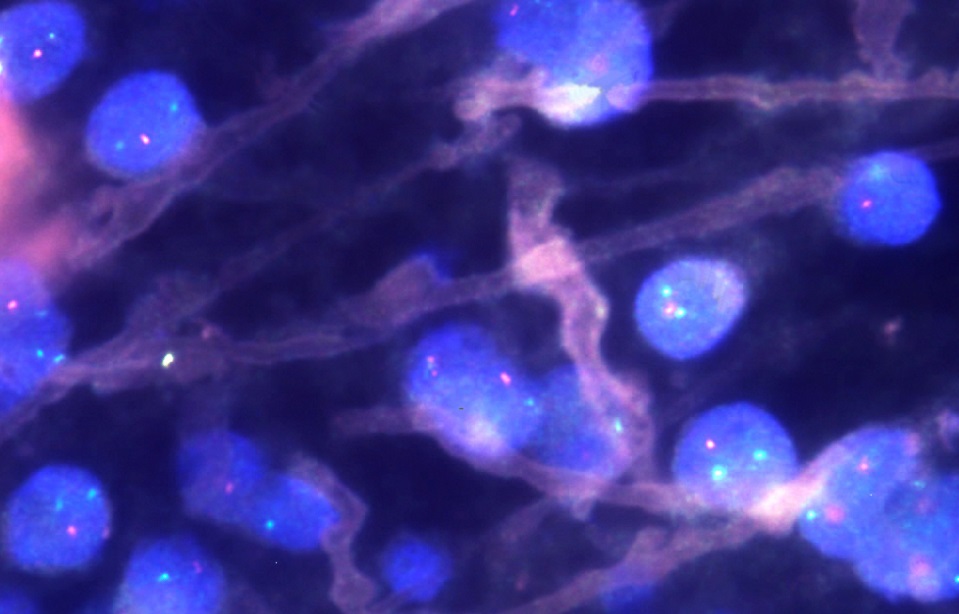
Brain UK study ref: 14/009,
Lay summary,
Project status: Closed
The role of Numb in the stability and activity of p53 in merlin-deficient tumours schwannoma and meningioma
Dr Sylwia Ammoun, Plymouth University
Deficiency of the tumour-suppressor protein Merlin leads to the development of tumours in the nervous system such as schwannomas, meningiomas and ependymomas. These tumours can arise spontaneously or as part of a hereditary disease called Neurofibromatosis type 2 (NF2). In NF2, patients develop tumours early in life leading to severe disability and shortened life span. No effective therapies are available and we are trying to find new drug targets by using human tumour cell models (cells artificially grown in the laboratory). Using our cell model for schwannoma we have previously shown that schwannoma tumour cells multiply quickly when there are high levels of the proteins MDM2 and FAK and degradation of a tumour-suppressor protein called p53. We will now investigate the role of a potentially very important protein called Numb which is known to regulate MDM2 and stabilizes p53 in other cells. Firstly, preparations of human schwannoma and meningioma tissues will be tested for the expression of Numb. Followed, the role of Numb will be investigated using human schwannoma and meningioma tumour cells. As soon we will fully reveal the mechanisms of p53 deregulation in our tumour models we will contact pharmaceutical companies to test new available drugs, firstly in our laboratory model and, if that works, in clinical trials.
